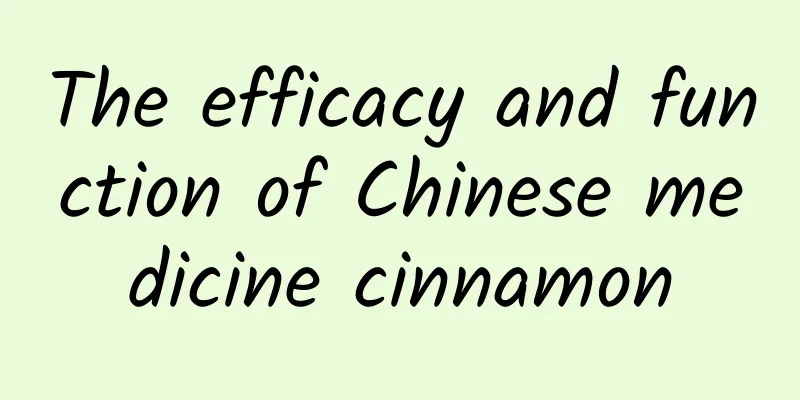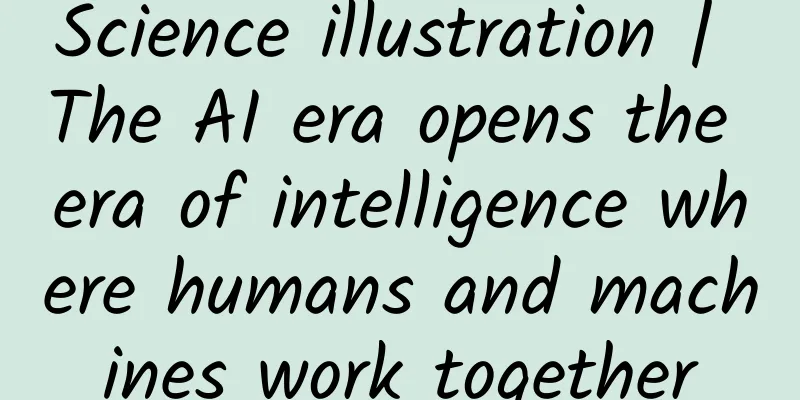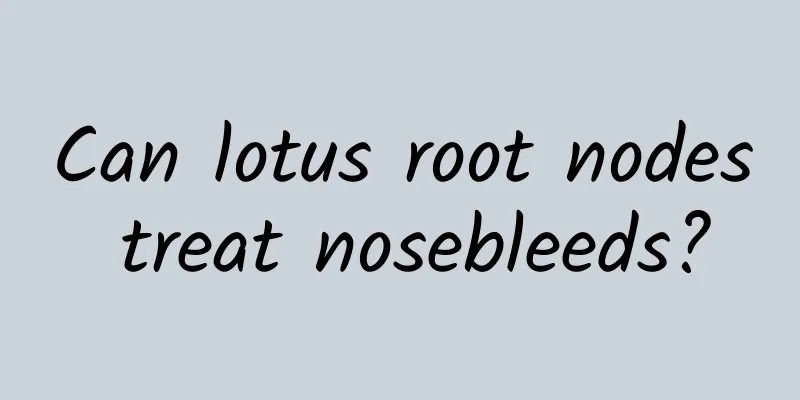The efficacy and function of Chinese medicine cinnamon

|
When it comes to the efficacy and functions of the traditional Chinese medicine cinnamon, most Chinese medicine practitioners are very familiar with it, because they often use it, and they often add it to some prescriptions for patients to take, so this can also indirectly indicate that the traditional Chinese medicine cinnamon has certain efficacy and functions, but when it comes to the efficacy and functions of the traditional Chinese medicine cinnamon, most people still don’t understand it very well, which is mainly related to everyone’s lack of understanding of traditional Chinese medicine. With the development of society and the close international exchanges, most people who study medicine are now seriously influenced by Western medicine. Therefore, in today's society, fewer and fewer people are studying Chinese medicine, which has resulted in less and less understanding of Chinese medicine. Let’s talk about the effects and functions of the traditional Chinese medicine cinnamon. The efficacy of Chinese medicine cinnamon Replenish fire and assist yang, dispel cold and relieve pain, warm the meridians and unclog blood vessels. 1. Tonify fire and assist yang. It is used to warm and assist the yang of the whole body by replenishing the fire of the life gate. It is also used for various symptoms of yang deficiency. It is often used together with aconite. The difference between aconite and cinnamon in replenishing fire and assisting yang: when the yang of the heart and kidneys is declining, aconite has an obvious effect, while cinnamon does not, so aconite is used for symptoms of yang loss; cinnamon is good at guiding fire back to its origin (the false yang caused by kidney yang deficiency rises, resulting in a yang-replenishing effect of true cold and false heat), but aconite also has a good effect. It is used for kidney yang deficiency, Mingmen fire deficiency and spleen and kidney yang deficiency. Cinnamon is pungent, hot and pure yang. It can replenish the fire of Mingmen, invigorate yang and eliminate yin. It is an important medicine for treating deficiency and cold in the lower abdomen. It is often used together with warming and tonic liver and kidney medicines such as aconite, rehmannia, and cornus officinalis, such as Guifu Bawei Pills. For those with spleen and kidney yang deficiency, use aconite, dried ginger, white atractylodes, etc. to warm and nourish the spleen and kidney. If the lower abdomen is cold and empty, the empty yang will float upwards. , if there is heat on the upper body and cold on the lower body, it can be used to guide the fire back to the origin. 2. Dispel cold and relieve pain, including warming the middle. Compared with aconite, aconite can also dispel rheumatism, so it is often used for rheumatic arthritis. Cinnamon, like cassia twig, is good at entering the blood and can warm and unclog the blood vessels. Therefore, many prescriptions for cold stagnation and blood stasis use cinnamon to warm and unclog the meridians. Cinnamon is stronger than cassia twig. Cinnamon can warm and move yang, and encourage the growth of qi and blood. Adding some cinnamon to the prescription for replenishing qi and blood is beneficial to the growth of yang and yin, and is beneficial to replenishing blood. It is used for cold pain in the abdomen, pain caused by cold and dampness, low back pain, as well as amenorrhea and dysmenorrhea caused by cold stasis in the blood. Cinnamon can both dispel deep-seated cold and unblock blood vessels. It can be used to treat pain caused by cold stagnation of qi or cold stagnation of blood. It can be taken alone or in combination with other cold-dispelling and analgesic drugs; for those with cold in the blood and poor blood circulation, it can be combined with drugs such as angelica and chuanxiong to promote blood circulation and menstruation. 3. Warming and unblocking blood vessels, it is used for surgical diseases such as Yin carbuncle, deficiency of Qi and blood, carbuncle with pus that does not break out, or pus that does not heal for a long time after breaking out. It can dispel cold, warm yang, and promote the flow of qi and blood. For Yin sores, it can be treated with cooked rehmannia, deer antler glue, ephedra, etc., such as Yanghe Decoction. For those with qi and blood deficiency, it can be combined with astragalus, angelica, etc., such as Toli Astragalus Decoction. Effects of Chinese medicine cinnamon (pharmacology) This product contains volatile oil, the main components of which are cinnamaldehyde, cinnamonic acid, cinnamyl acetate, etc. In addition, it contains trace elements, among which zinc content is relatively high. It has anti-ulcer, analgesic, sedative, anticonvulsant, antipyretic, anti-myocardial ischemia, anti-platelet aggregation, leukocyte-increasing, anti-radiation and antibacterial effects. 1. This product contains volatile oil, called cinnamon oil or cinnamon oil. The main components of the oil are cinnamaldehyde, cinnamyl acetate, propylphenyl acetate, etc.; in addition, it also contains mucus, tannins, etc. The water decoction of this product can dilate blood vessels, promote blood circulation, increase coronary and cerebral blood flow, reduce vascular resistance, significantly reduce blood pressure and urinary aldosterone in adrenaline-regenerating hypertensive rats, increase urine volume, significantly increase the content of enkephalin in the striatum and hypothalamus, and significantly improve hypertensive damage to the thoracic aorta intima. In vitro, its methanol extract and cinnamaldehyde have antiplatelet aggregation and antithrombin effects. Cinnamon oil, cinnamaldehyde and sodium cinnamate have analgesic, sedative, antipyretic and anticonvulsant effects. Cinnamaldehyde and sodium cinnamate can increase the white blood cell count of rabbits. Cinnamon oil has a mild stimulating effect on the gastric mucosa, and promotes gastric function by stimulating the olfactory reflex. It can promote intestinal motility, increase digestive tract secretions, enhance digestive function, eliminate gastrointestinal gas, and relieve gastrointestinal spasmodic pain. Cinnamon water extract can inhibit the phagocytic function of the mononuclear macrophage system, inhibit the antibody production of mice sensitized with sheep red blood cells, reduce the spleen weight of young mice, and inhibit complement immune hemolytic reaction (in vitro). Cinnamaldehyde and sodium cinnamate can increase the white blood cell count of rabbits. Cinnamon oil can cause uterine congestion. Cinnamon oil has an inhibitory effect on Gram-positive and Gram-negative bacteria. The ether, alcohol and water extracts of cinnamon have a certain inhibitory effect on many pathogenic fungi. 2. There are many types of cinnamon medicinal materials, including Qibian Gui, Ban Gui, Guitong, and Guixin. Qibiangui is made by peeling the bark of the trunk of the cinnamon tree that has grown for more than ten years, sandwiching it in a wooden concave-convex board and drying it in the sun. It is in the form of long sheets. Ban Gui, also known as Gui Nan, is made by peeling the bark of old cinnamon tree trunks, sandwiching it in cinnamon folders, and taking it out when it is 70% dry. It is then dried in the shade and becomes in the shape of plates. Guitong, also known as official gui, Guiertong, strip gui and tube gui, is the bark of the trunk or thick branches of young cinnamon trees cultivated for 5 to 6 years. It is peeled off and exposed to the sun for 1 to 2 days, rolled into a cylindrical shape and dried in the shade. It is cylindrical or semi-trough shaped. The heart of the osmanthus tree refers to the edge strips removed during processing, without the cork. The fragrance of Qibiangui is strong, oily and of good quality. Through the above article's detailed introduction to the efficacy and effects of Chinese medicine cinnamon and other aspects, we can clearly see that Chinese medicine cinnamon has many efficacy and effects, and most of them are good for the human body. Therefore, everyone might as well learn more about traditional Chinese medicine in the future, which will be very beneficial for our future life. |
<<: Effects of Prunella Vulgaris
>>: Effects and functions of Chinese medicine Wumei
Recommend
The efficacy and function of birch
The traditional Chinese medicine Birch is already...
The efficacy and function of rectangular leaf thorn
Modern medical research believes that the rectang...
Can sweating also cause sunburn? 5 preventions and 3 treatments to help you solve the problem of sunburn
The scorching sun and high temperatures are a gre...
The efficacy and function of large-leaf perilla
Do you know about large-leaf perilla? It is a com...
What are the effects and functions of knotweed?
In many people's impressions, knotweed is jus...
What are the medicinal values of stevia?
Stevia is a common sweetener because of the sweet...
#There should be a sense of ritual during the New Year#, what exactly is a sense of ritual?
It's the Spring Festival again. What should w...
Driving on Mars is not easy: the wheels are very different from those on Earth
Produced by: Science Popularization China Author:...
Symptoms are similar to those of a cold, and once infected, you carry it for life! It has been more common recently... Be careful!
When it comes to high fever, sore throat, many pa...
The efficacy and function of Twelve Sophora japonica flowers
Sophora japonica flower is a very nutritious and ...
The efficacy and function of hanging bamboo plum
In today's society, health preservation seems...
The efficacy and function of Lithospermum officinale
Diseases require improvement through medicine. Di...
Ghost Festival丨During the Ghost Festival, pray for blessings and remember the dead... Please keep these tips for civilized tomb sweeping and safety
The coolness of the trees creates a refreshing fr...
The efficacy and function of Photinia leaves
Chinese medicinal materials are very common, and ...
Can ordinary people go into space and see the universe?
With a deafening roar, the rocket took off, and t...









